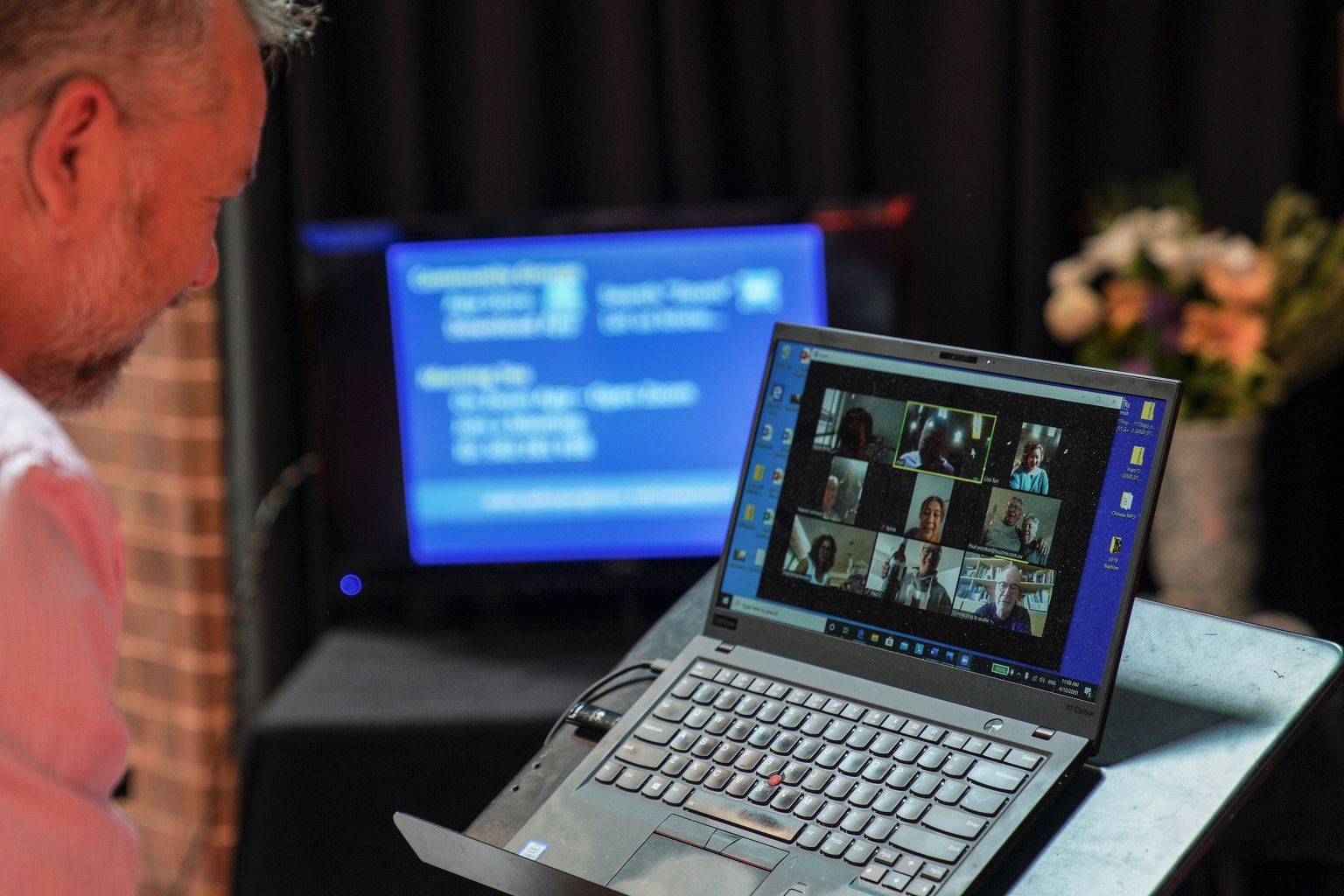Coronavirus: Britain breaks with past to approve virtual parliament plan using Zoom
Sign up now: Get ST's newsletters delivered to your inbox

A pastor in Australia interacts with parishioners via Zoom on a laptop.
PHOTO: REUTERS
LONDON (AFP) - Plans for the House of Commons to sit remotely for the first time in its 700-year history in response to the Covid-19 pandemic were approved on Thursday (April 16) by parliamentary authorities.
The unprecedented move to use Zoom, an internet conferencing service, for sittings of the chamber will allow MPs to question ministers over policy while Britain remains in lockdown.
The government is expected to prolong its stringent social distancing regime in an announcement later on Thursday.
The new proposals for parliament will see 120 MPs at any one time able to ask questions from remote locations, with another 50 allowed to actually sit in the chamber under "strict social distancing rules".
Commons Speaker Lindsay Hoyle said the move would allow MPs to continue "their important work scrutinising the government" during the pandemic, while not putting themselves at risk.
"By working virtually, this is our contribution to the guidance of stay home, protect the NHS and save lives," he added.
MPs working remotely will be allowed to take part in the weekly Prime Minister's Questions, under the proposals.
The move to a "hybrid" house was approved by the House of Commons Commission - which contains 10 members including Hoyle and the Leader of the House, Jacob Rees-Mogg.
"These measures will make it possible for Parliament to continue its work of conducting scrutiny, authorising spending and making laws - all of which are essential to tackling coronavirus," Rees-Mogg said in a statement.
The plans will need to be formally approved by MPs themselves when their Easter recess ends on April 21.
Screens will be placed in the main chamber where MPs debate using the internet.
It is not clear yet what might happen if MPs are called to vote, with Commons having to decide on any system which might allow remote voting.
Parliament shut on March 26, a week early for the Easter break because of the virus outbreak.
There were fears parliament might have helped spread the virus after various lawmakers contracted the disease, including the prime minister - who was hospitalised for a week - and health secretary.
The main opposition parties had called earlier this month for its return to try to hold ministers to account.


